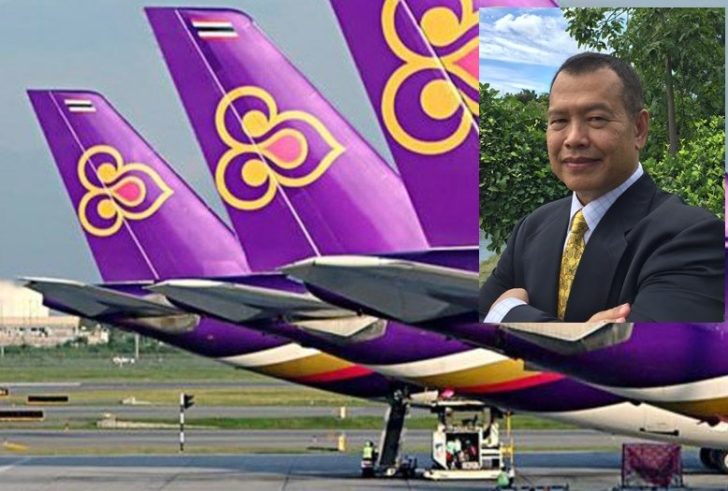| ผู้เขียน | Wirot Poonsuwan |
|---|
A creditor who disagrees with the seven-strong team of planners Thai Airways International Plc has proposed to draft its business rehabilitation plan and manage its business and assets will find it challenging to identify alternative planners to compete with the debtor’s proposal.
The four new board members are the core strength of the team.
Given the high profile of the team within the Thai business community, an objection from a creditor, if any, is likely to come from a foreign creditor, rather than domestic groups.
Debtor-Friendly Rehabilitation Law
Added to how unlikely it is for creditors’ challenge to succeed is the business rehabilitation law that sides with the debtor in their efforts to secure planners of their choice.
The law specifies that if creditors long to appoint their own planners in competition with the debtor’s, they have to do it via a creditors’ meeting and pass a resolution from a great majority of two-thirds of all the debt or 66.67%, a daunting task to achieve.
In the case that the creditors fail to garner that many votes, the debtor’s planners are automatically to be appointed by the court.
Three Reasons Creditors Protest Against Debtor’s Planners
No matter how slim chances are for creditors to be able to nominate competing planners, limited opportunities remain. Let’s start with a logical basis why you would want to change the planners.
At least, there are three obvious reasons.
Any legitimate creditor, large or small, is entitled to protest against the debtor’s planners.
A creditor, expressing its intention to object to the planners—with or without objecting to the rehabilitation application itself—must file its protest in writing with the Central Bankruptcy Court no later than the regulatory deadline of August 13, 2020, three days before the first trial date scheduled for August 17.
Names of qualified new planners along with their letter of consent will have to be submitted.
Same Old Same Old
The first reason not to accept the planners proposed by Thai Airways is a lack of trust.
The proposal by the debtor rekindles a sense of continuity of the same old unpleasant story unfolded for a reform said to be launched by the very same people at the helm of the company as it entered rehabilitation.
How can a creditor trust the company to turn itself around when there is no change at the top?
The company would defend its case by saying the new faces on the board will make the difference.
It would also counterargue that it’s common for Thai businesses in rehabilitation, including those that are successful, to have existing executives carry on as planners.
Conflict of Interest
Another reason for objection is a conflict of interest.
Creditors cannot expect the debtor’s planners to launch an unfriendly investigation and hostile court petition against the debtor itself.
Under the business rehabilitation law, the planners are empowered to take such action as acting on behalf of a creditor who claims that it is injured by a contract and payout made by the debtor to another creditor on the allegation of fraudulent preferences delineated under the Civil and Commercial Code.
Especially those contracts made within one year prior to the date of filing the rehabilitation application.
The Mind Boggling One-Year Period
Backtracking to determine the period of one year from the date the debtor filed its voluntary application of business rehabilitation with the Central Bankruptcy Court: the date of filing was May 26, 2020, so one year before this date is May 26, 2019.
A contract that the debtor favors one creditor over the others during this May 26, 2019 to May 26, 2020 period will be presumed by the rehabilitation law that both the debtor and the “enriched” creditor knew of Thai Airways’ insolvency and were aware of the fact that the debtor’s assets are insufficient to fully pay all of the debtor’s debt to all of the creditors.
An example would be if the debtor entered into an aircraft-financing deal within the one-year period for a financial lease, operational lease, hire-purchase or straight-forward sale and purchase contract and provided the financier with a bank guarantee to secure its financial obligation.
The debtor then defaulted after declaring a moratorium, enabling the aircraft-financier to call and get paid under the bank guarantee—ahead of any other creditors.
Example of Conflict of Interest Animated
In the example above, the aircraft-financing contract, the bank guarantee as well as the payment under the bank guarantee could be considered as undue preferences given to the aircraft financier, who is enriched, over all other creditors.
A rival aircraft-financier or any other creditor could allege that the fraudulent preference is prejudicial to its right.
The injury to the other creditors is the debtor’s pool of insufficient assets will become even smaller, further harming the ability of the debtor to pay off the full amount of the debt to the injured creditor.
(To be continued.)
Wirot Poonsuwan is Senior Counsel and Head of Special Projects at Bangkok law firm Blumenthal Richter & Sumet and can be contacted at [email protected].










